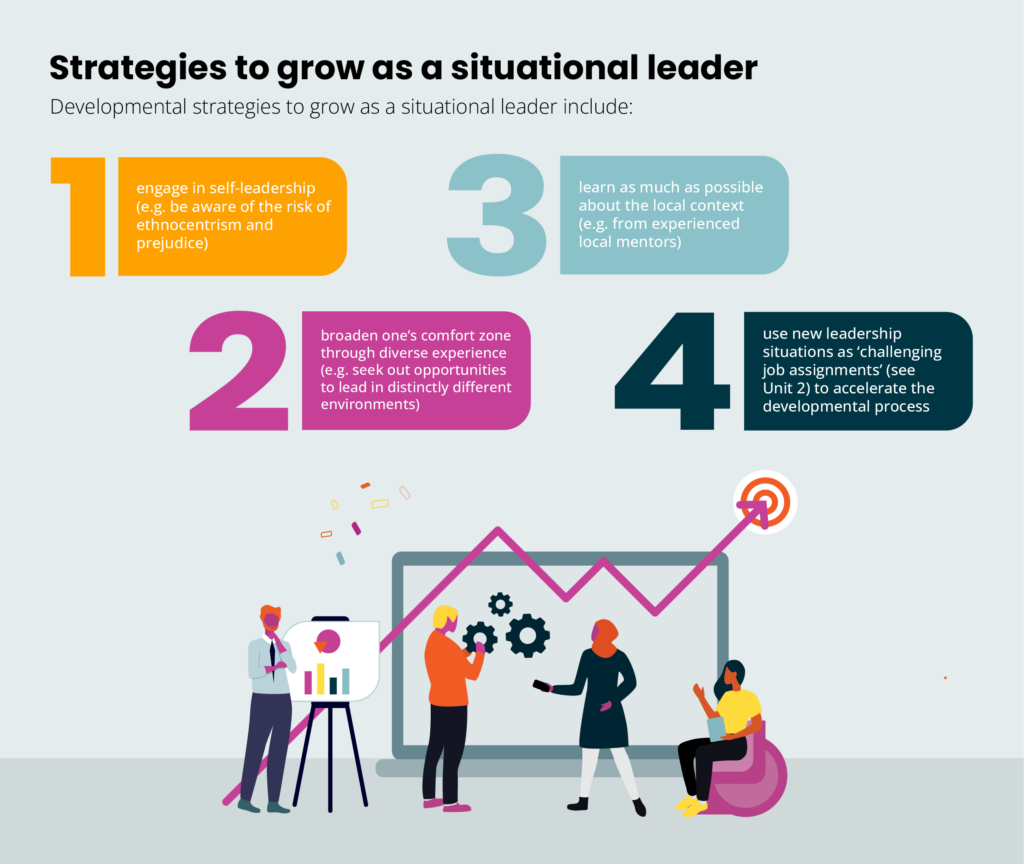Effective leadership hinges on the capacity to utilise a diverse array of styles, adapting them to best suit the prevailing circumstances. Situational leadership emphasises that the ideal leadership approach varies depending on the context, and no single style is universally effective.

Global research on leadership styles
In his groundbreaking article, “Leadership that Gets Results,” Daniel Goleman presented findings from an international research study that investigated prevalent leadership styles amongst executive leaders. Goleman’s research demonstrated that successful leaders do not depend solely on one style; instead, they continuously adapt their approach based on their organisation’s situation and market conditions.
The relevance of situational leadership in navigating challenges
Situational leadership has become an indispensable skill, particularly for leaders in intricate organisations and systems. Modern leaders must tackle numerous challenges, from managing daily operations to driving significant transformation initiatives. Adapting one’s leadership style to address the specific demands of each situation is crucial for success.
Evaluating developmental levels and context
Central to situational leadership is the ability to understand the developmental level of those being led, as well as the organisational and market contexts in which they operate. Different individuals and teams display varying levels of capability and readiness, particularly when faced with organisational transformation and new responsibilities. A skilled leader must assess their team members’ developmental level, the internal and external contexts, and the expectations placed upon them, adjusting their leadership style accordingly.
Evaluating developmental levels and context
Identifying and responding to the distinct needs and challenges of operating amid market and societal uncertainty is another essential aspect of situational leadership. For example, during a crisis, a leader may need to adopt a more directive, authoritative approach to manage the immediate situation, while in a stable environment, a collaborative, participatory approach may be more appropriate.
The significance of communication
Communication is also a critical component of effective situational leadership, impacting a leader’s ability to exert influence across management levels, functional divisions within the organisation, and with external partners or authorities (e.g., contractors and regulators).
Self-reflection and awareness
Moreover, leaders should be self-reflective and cognisant of their biases and limitations, actively seeking feedback and input from others.
Situational leadership has emerged as a vital capability, enabling leaders to navigate and influence the complexities of contemporary organisations and systems. Adapting one’s leadership style to address the specific demands of each situation, understanding the developmental level of team members, recognising and responding to the unique needs and challenges of various situations, and being aware of one’s biases and limitations are all integral components of effective situational leadership. Situational leadership plays a crucial role in empowering leaders to navigate and influence the intricacies of modern organisations and systems.
For more information on how our People Experience team can support your organisation’s leadership development and transformation, book in for a chat or contact us here.


















